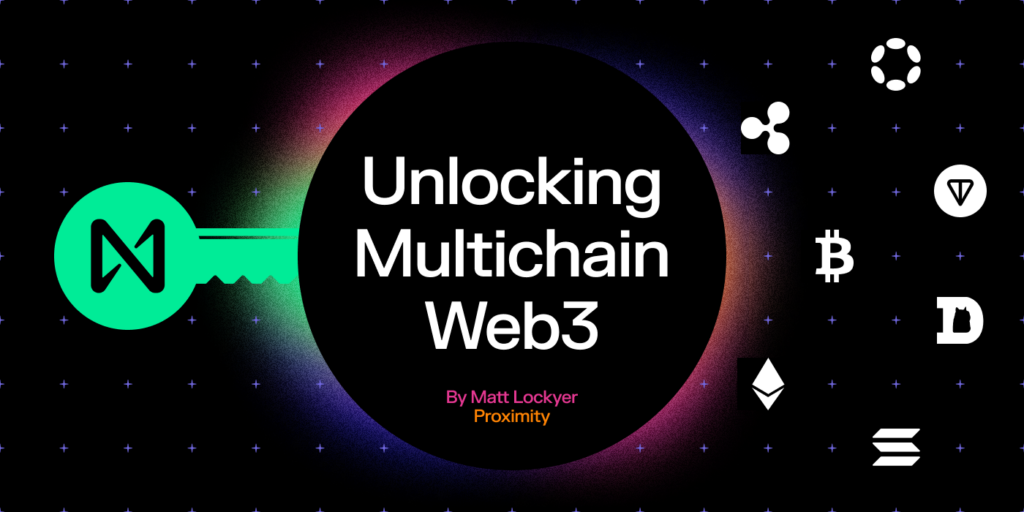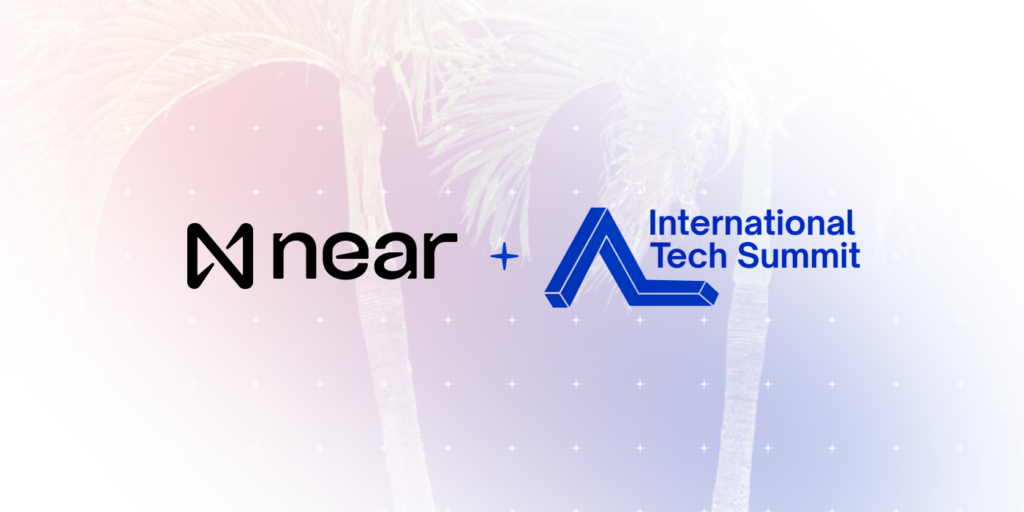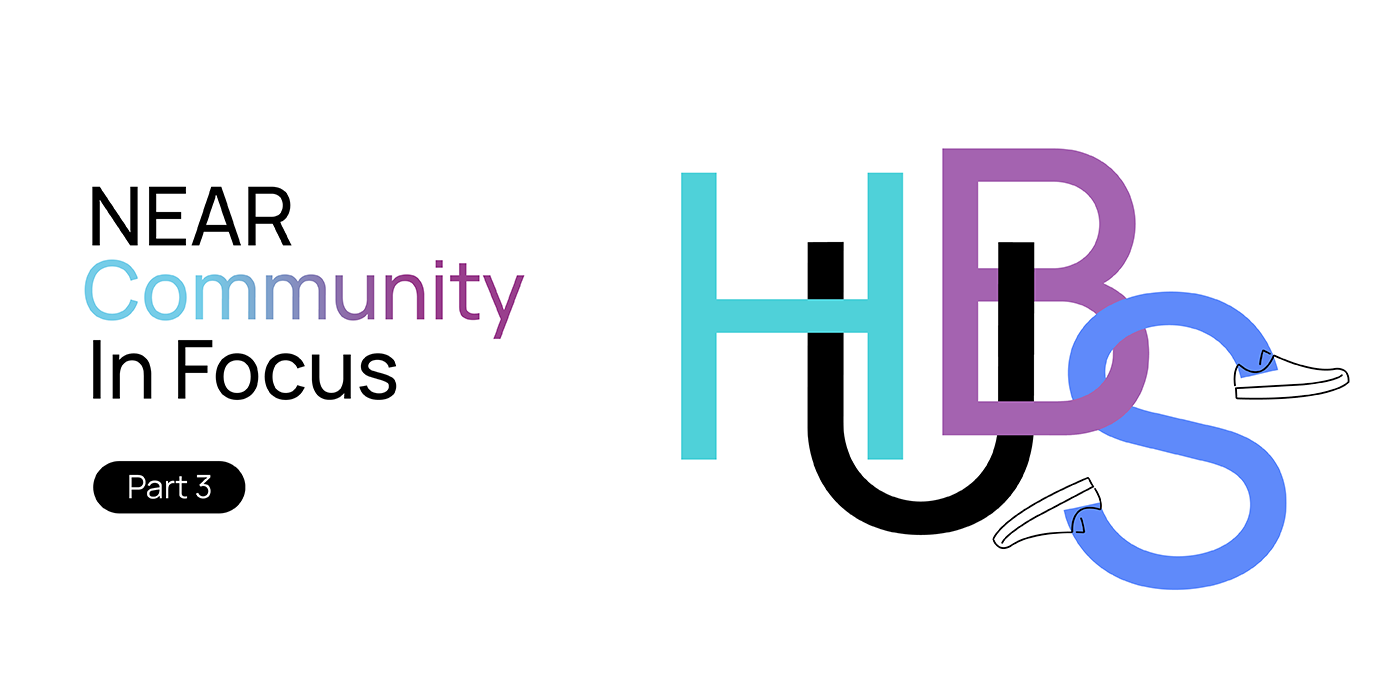NEAR Community in Focus: NEAR Regional Hubs
Across the NEAR ecosystem and beyond its digital borders, there is frequent talk of NEAR’s infinite scalability. But leveraging scalability, fast transactions, and low costs to reimagine the future ultimately requires a vibrant NEAR community. This is where NEAR Regional Hubs come in.
As portals into a multi-faceted, ever-evolving ecosystem, NEAR Regional Hubs are communities where new projects and teams can meet and learn from Web3 natives and early adopters. Led by local entrepreneurs, and operating as independent legal entities, NEAR Regional Hubs are crucial in helping NEAR Foundation reach its missions and objectives around the world. With fully operational outposts in Asia, the Balkans, Ukraine, and Kenya, these hubs are vibrant incubators of Web3 communities, talent, and products.
To get a better idea of how they operate and what each is up to, let’s take a deep dive into NEAR Regional Hubs.
NEAR Regional Hubs: Mission, structure and operations
“Each hub has its own flavor,” says Grace Torrellas, NEAR Foundation’s Head of Regional Hubs. “No hub is expected to be a specific way, or follow the same organization or structure.”
Hubs tend to follow one of two primary approaches: local awareness and education or product lab and ecosystem fund. In the first, hubs generate local awareness and onboard new users, as well as support project building on NEAR. There are also activations through press releases, IRL events, and major local blockchain or tech events. Hubs that opt for this approach, like NEAR Kenya, are major drivers of NEAR Education programs, creating opportunities for developers and students to learn Web3 skills.
The hub as a product lab or ecosystem fund drives adoption by working closely with projects from idea to execution. They also create partnerships with relevant organizations and government agencies. These hubs function like incubators with fundraising, accelerator, community building, and user acquisition functions.
NEAR Asia: The first and largest regional hub
Led by Amos Zhang, a Web3 investor and entrepreneur, NEAR Asia has undergone quite an evolution since inception. What began as an organizing force for NEAR’s Chinese community, it’s expanded to now include Korea and Vietnam. Featuring a product lab and ecosystem fund, along with $5M in funding from Metaweb, NEAR Asia is an active incubator of Web3 projects.
The hub has also been instrumental in helping the NEAR Foundation secure funding for Web3 talent and project development. NEAR Asia supports users, developers and entrepreneurs in Asia by hosting events, hackathons, translated content, and more.
“Half of global internet users are in Asia, home to apps like WeChat, Alipay, and Metituan,” says Zhang. “Mobile payments are also highly common in many Asian countries like China and Korea. This creates a great base and perfect fit for adopting blockchain technology, and NEAR’s mission has always been to make blockchain easy and usable by mainstream users.”
The NEAR Chinese community is one of the largest communities in Greater China. Over 50,000 users engage in various community-hosted channels. And many developers and entrepreneurs are actively building on NEAR.
In late 2021, NEAR Asia partnered with Alibaba’s Taobao for its Maker Festival. Hosted by China’s leading e-commerce platform, which generated more than $500 billion USD in revenue in 2020, Taobao Maker Festival (TMF) is an annual summit for top creators and innovators from the Taobao community. Taobao debuted “Too Rich City,” the first and only public chain-based NFTs created by artist Huang Heshan.
Zhang says that Vietnam is one of NEAR’s biggest communities, with more than 30,000 members. This community is highly active on Telegram, Facebook, and Discord. The Vietnamese community recently partnered with GFS to run online education events to promote the NEAR ecosystem and educate both investors and developers.
NEAR Ukraine: A hub within a hub
Activated in late 2021, the Ukraine Hub is very much developer-oriented. But Anton Vaisburd, who leads the Ukraine Regional Hub, sees a multi-faceted community.
“From one point of view, we’re an independent organization and kind of a for-profit organization,” says Vaisburd. “On the other, we’re a regional hub and community of people building on NEAR. We’re helping everybody out of Ukraine, building the product lab, and deeply connected with the foundation as a whole ecosystem.”
NEAR Ukraine’s venture arm includes a product lab, which funds projects building on NEAR. The hub also performs marketing and PR functions, as well as organizing events like hackathons, conferences, and more.
Amidst NEAR Ukraine’s hustle and bustle, the war in Ukraine weighs heavily on the community.
“There hasn’t been a single hour we haven’t thought about it,” says Vaisburd. “I would love to say that it’s business as usual, but it’s not. You’re thinking about the importance of not only building social initiatives like helping Ukrainian refugees but also supporting the government and army, and trying to fight Russia in every way possible.”
“What we realized is that we should do what we can do best, and that’s build products,” Vaisburd adds. “We’re trying to work harder because the better we work, the better we can actually perform, and the more we can pay taxes and support Ukraine.”
With its current home in Lisbon, NEAR Ukraine is hub within a hub. The community is keenly aware of this. So NEAR Ukraine is creating an inclusive atmosphere in Lisbon, where local citizens, refugees, and expats from around the world can gather.
“We’re trying to build a Web3 community for all in Lisbon,” says Vaisburd. “Soon, we’re going to announce our crypto summer house, where we are going to gather everyone, plan events, and host hackathons.”
NEAR Balkans: Seven countries, one Web3 hub
NEAR Balkans, which officially launched two months ago, started to coalesce in the summer of 2021. That’s when crypto natives Edi Sinovcic and Luka Sucic—the hub’s co-founders and current advisors—decided to unite Bosnia & Herzegovina, Bulgaria, Croatia, Montenegro, North Macedonia, Serbia and Slovenia into a single Web3 community.
Ida Pandur, the General Manager of NEAR Balkans, says the hub has three primary areas of focus: Web3 education and community building, partnerships with traditional businesses, and product development.
“Basically, the idea was to bring seven countries into the hub, into a community,” says Pandur. “Educate the community about Web3, about the opportunities, and how NEAR is the main facilitator of these Web3 opportunities within the region.”
Community building and Web3 education at NEAR Balkans has already included a number of local meetups across the Balkans. The hub is also sponsoring specific Web3 conferences and building relationships with universities to attract students.
“We are also preparing custom-made education for the developers to get certified on NEAR and Web3,” says Pandur. “We believe once you educate the market, then it’s easier to do everything else.”
Parallel to education, NEAR Balkans works with both traditional and Web3 companies interested in Web3 integration. To help facilitate this process, the hub distributes grants to projects they see as showing potential. The hub is also available to companies looking to transition to NEAR from other Web3 platforms; and to individuals and teams looking to build projects from scratch.
“We have our own research and development lab, and are looking to launch three products in the next few months,” Pandur says. “Two products are going to be in the DeFi space, and the other is going to be an NFT product. So, products are going to be a main focus of our hub.”
NEAR Kenya: Spreading word of Web3
NEAR Kenya is taking a different tack by building community from the ground up.
“What’s lacking on the ground is predominantly a basic understanding of blockchain and why it’s important,” says Kevin Imani, NEAR Kenya Hub General Manager and Sankore Guild founder.
Community members want to learn about Web3. But job prospects are also top of mind. To meet these needs, NEAR Kenya funnels individuals into NEAR Education programs.
“We’re promoting NEAR Education different certification programs,” says Imani. “We’re also getting involved with universities. By that I mean having a stand in a college hallway and telling students, hey, we have this thing going on this Saturday. Just come and we’ll break down some of these principles.”
“We’re replicating NEAR Education content and breaking it down to the basics,” says Imani. “The end goal is to get them a job. So, hopefully, we’ll have one of the first Africa-based developer shops, where developers can be hired from other parts of the NEAR ecosystem, and jump on really exciting projects.”
Imani believes these efforts will bear future fruit—a self-sustaining Web3 community in Kenya and neighboring countries. One built on a playbook based on speed, execution, inclusivity, and scalability.
“The playbook will showcase how a Layer 1 protocol can be leveraged to implement blockchain in Eastern Africa, and do it effectively,” says Imani. “A 360-degree experience of someone who’s never been exposed to Web3, making sure there’s a space for them, all the way to bringing apps built by local talent onto NEAR mainnet. And just solving problems from infrastructure to decentralized finance, etc, in our respective region.”
“Within a few years we’ll have some components in place, although it won’t be perfect,” Imani says. “Something tangible where we can say, ‘Hey, guys, we actually built something totally new.’”
Bringing NEAR hubs to other regions
Many other NEAR Regional Hubs are in active development. The LATAM Regional Hub, which would include several Latin American countries, is currently in the works. The hub is spearheaded by Claudio Cossio, founder of Metapool and Hispano Guild, an early NEAR Guild.
“The LATAM Hub will focus more on education, and there are two programs that are quite critical in that education pipeline,” says Torrellas. “NEAR-certified developer and NEAR certified entrepreneur. Those two will allow the hub to pair the students with projects.”
NEAR Foundation is now focusing on India, home to a large number of developers and strong interest in Web3. The government has even expressed interest in having NEAR be part of university curricula. This hub will feature both education and innovation.”
Torrellas says a hub in Dubai, United Arab Emirates (UAE) is another area of interest. Many successful Indian developers have moved to Dubai, making the UAE a natural fit for a NEAR Regional Hub. And, of course, the United States will also feature a number of Hub Nodes forming part of the NEAR Regional Hubs network. Efforts are now underway to begin establishing hubs in Austin, San Francisco, New York City, and Miami.
“There are so many places in the world where we know great opportunities seed, we are at the best time to build strong local connections and get people on board,” says Torrellas. “We need to focus on where those opportunities are.”
Check out the complete series on the NEAR Community:
Share this:
Join the community:
Follow NEAR:
More posts from our blog



